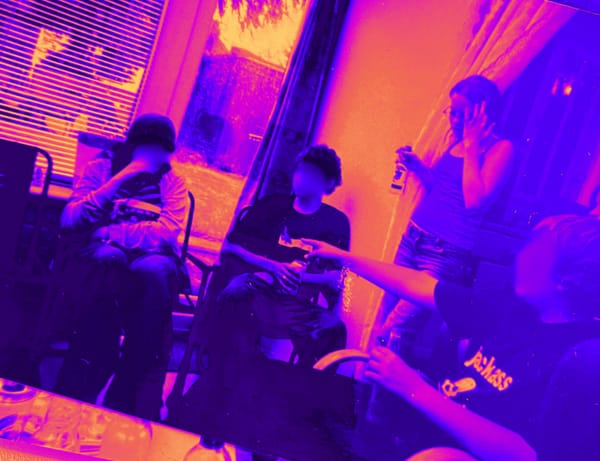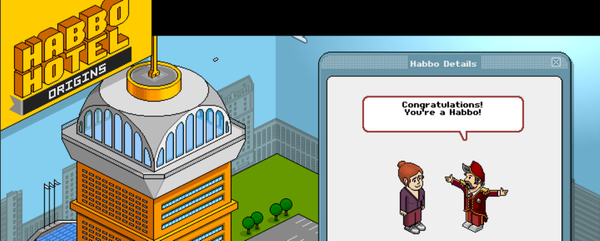I Understand
On why people stay, despite everything
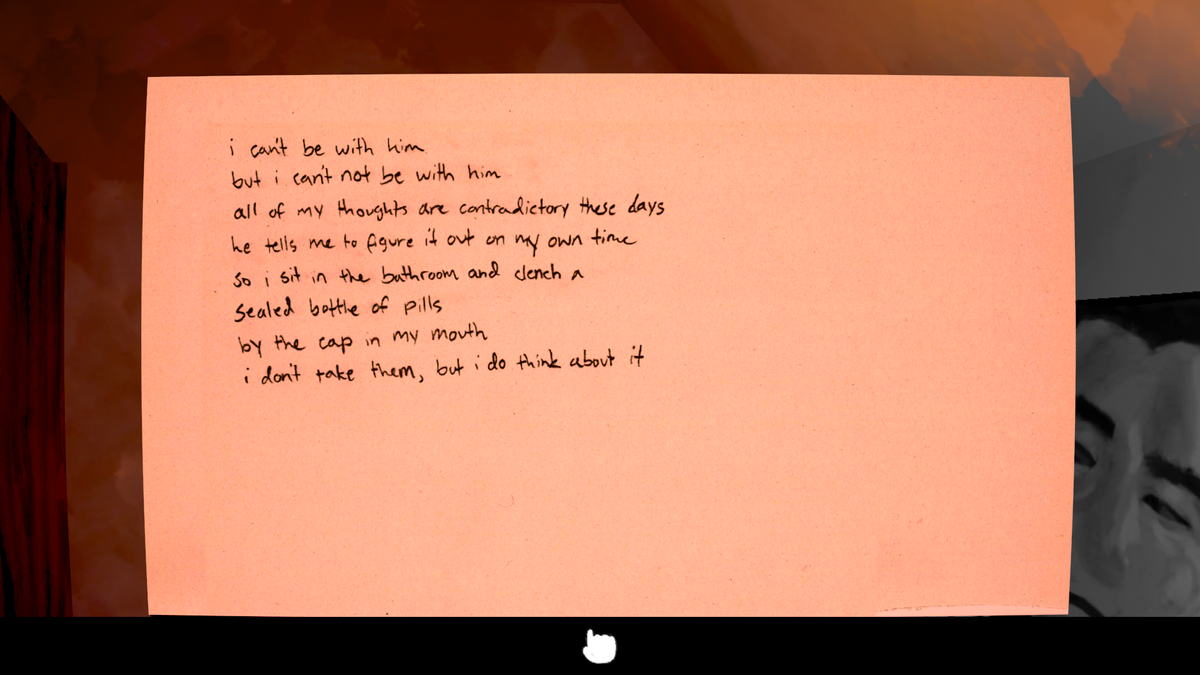
A quick trigger warning: this is about domestic abuse, so please don’t read it if you don’t feel comfortable. I like to think it ends on a hopeful note but you know, just be careful.
At the time of writing, there is Tedious Twitter Discourse happening (like every other day of the week). Today's discourse is around abuse, and why people in abusive relationships 'martyr themselves' by staying.
So many times over the past few days I've considered weighing in, typing furiously on my phone, reading it back to myself, and deleting it. Ultimately, I came to the conclusion that it's not something that can be explained. Not in a tweet. Not in a thread of tweets. Not in a casual chat. Not in long, soul-baring conversations over drinks. Not in early-morning chats in bed as the sun rises. Not even in a lengthy Substack. (Although I’m going to give it a good try.)
Let's get the worst thing out of the way: when I was sixteen, I was in an emotionally, physically, and sexually abusive relationship for a year. I won't go into details, for several reasons, but mostly because I don't think it's necessary. I'm only just becoming aware of what a heavy load this is for people to take; even when I need to unload the trauma (which is rare), I shouldn't just say it unless people are prepared to hear it.
Also, it's still tender sometimes. So many years later, my life has changed beyond recognition. I have fallen in love, made new friends, and had children. My life is rebuilt, beautiful, birthed again from something broken. But sometimes, even now, it hurts to poke at it. Like a fading bruise.
I'm weighing in today because I actually have some kind of expertise to bring to the table. I can actually speak on it because I know it. I am a member of a really shit club, and the reward is understanding something that can't really be explained with words. This is a slight contrast to the last club I joined, in which I got a badge and a certificate, but I guess this isn't the Official Beanie Baby Fan Club circa 1997.
(I'm waffling because I'm nervous.)
Let's talk about it. Why people stay.
In one of the lockdowns, I went for long walks. The pressure of homeschooling, keeping my children happy, working, and studying was relentless, and it opened the floodgates to a barrage of unhappy memories. So I would wrap myself up warm once a week, and go for a long walk. No music, no podcasts. I would listen to the stillness, and remember, until my feet went numb and the thoughts became easier to deal with.
I had the idea for an interactive novel. I made up a character in my head. As I walked, I imagined her walking, too. I imagined her doing an Alice-In-Wonderland-style expedition, stumbling into a dangerous wilderness.
Only the landscape is alive. The more she explores, the more of herself she pours into it. The voice she hears in the trees asks her questions and gives her directions. She doesn't notice that the questions are loaded, that their instructions are tricking her. She gives herself to it so deeply that she starts to forget who she is. Eventually, she has a choice. To leave, or to stay. Leaving isn't as easy as it should be, though. She's close to home; the membrane between this strange new world and her old life is thin. But she can't see that.
It turns out that I don't have the brains to make interactive stories. The possibilities make my head spin, and I keep opening up Twine only to find myself breaking out in a cold sweat. So I gave up. But occasionally, I think about her. Lost in the woods. Unable to work out what is real, and what isn't.
All this got me thinking about games, and how they tackle the subject of abuse. The closest I've seen in a 'bigger' game is The Suicide of Rachel Foster, and I hated the way they dealt with it. (I don't often despise video game characters, but Leonard McGrath is right up there on my shit list.) Abuse is a sensitive subject, and it's hard to do it justice. But video games tackle hard subjects all the time: grief, loss, identity, heartbreak. Why not this?
Video games seem, to me, to be a good way to explore this. To try to explain what it means to be stuck in a harmful situation that you can't get out of. To put people in that position in a way that other mediums literally can't do.
I can always rely on indies for this sort of thing. Indies are prepared to go dark when necessary. And so began my quest, to find a game that can adequately put you in the shoes of a person in too deep.
Let's start with CURTAIN, a downloadable game on Itch.io by Dreamfeel. I had some problems with CURTAIN. It kept crashing my ageing gaming laptop, and the blurry visuals made my eyes hurt a bit. The latter is a purposeful design choice (at least, I think). Trying to make sense of your surroundings is a difficult task, and the visual overwhelm along with the time-jumping story left me feeling disoriented.
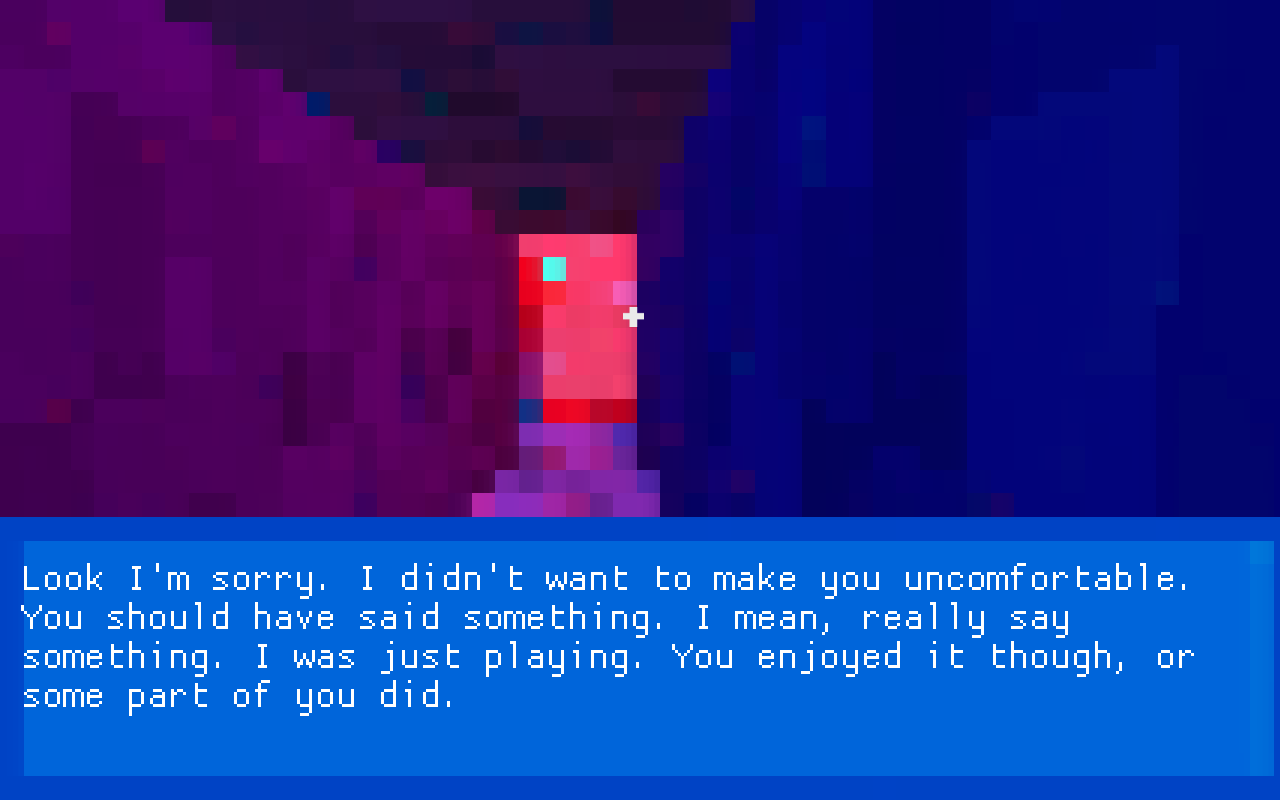
CURTAIN tells the story of a young couple in a band. Everything is moving quickly for them. They live together, along with their other bandmate, and their music is gaining traction, at least locally. It's a 25-minute game, and basically involves clicking on items in the flat while Kaci, the abusive girlfriend, follows the main character Ally, talking to her relentlessly.
Kaci is so obviously toxic she almost comes across as a caricature. Surely no-one could be that awful? And yet it's so familiar to me: Kaci stalks Ally around, monitoring her phone calls, asking for her email password, not allowing Ally access to a key to their flat. To escape, Ally spends time in the shower, and when she returns, things are different. The colour palette shifts to various shades of red, and Kaci's mood has soured. Entering the shower 'resets' the day, and you're never sure what Kaci will be like when you go back. It's unpredictable, and leaves you on edge.
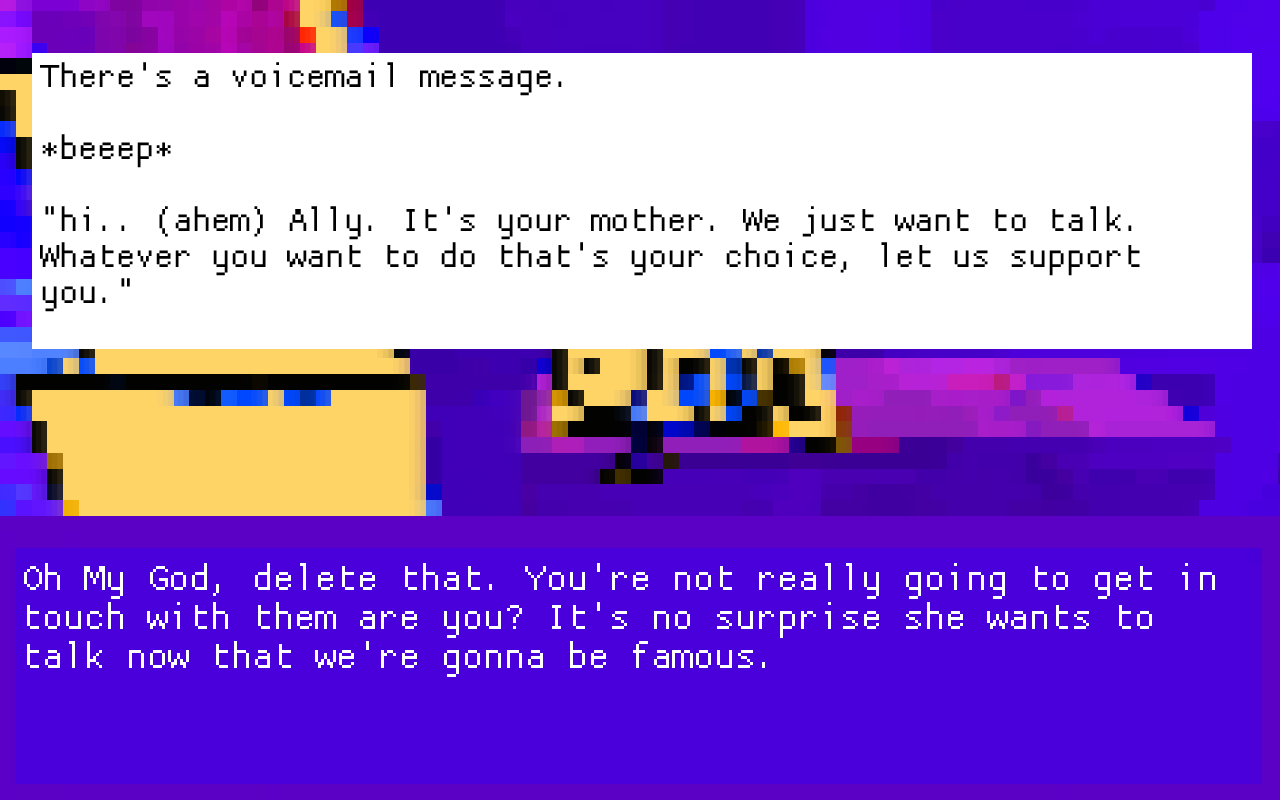
There were two main points that rang true for me about CURTAIN. Firstly, Kaci plants seeds of doubt in Ally's mind right from the beginning. Anyone else trying to interfere with the relationship is mischaracterized as jealous, or unsupportive. As the game goes on, Ally starts to lose support from her only friend, Rebecca: she hasn't heard from you in a year and she's kind of busy, actually. Meanwhile, Kaci stands in the way as an obstacle to Ally reaching her parents.
This is an absolutely key factor in terms of the ability to leave an abusive relationship. The sinister, underhanded separation. If an abuser can separate you from your loved ones, they will. And after a while, you start to think that no one will care even if you did try to reach out. You start to feel that, because you treated your friends so badly, they won't be interested in you asking for help. Making it that much harder to escape.
Secondly, Kaci wears away at Ally's self-esteem. She constantly undermines her talent by outright insulting her, or insinuating that the small amount of talent Ally does have is kind of accidental, a stroke of luck. Breaking down someone's own sense of self, piece by piece. Leaving them weaker. And again, less likely to leave. I couldn't help but think of myself at sixteen: bursting with creativity, only to find everything I made or did (websites, stories, photography, even just singing) criticized to the point where it was easier to just stop.
CURTAIN is overwhelming, although I didn't find it as suffocating as LOVED (which we'll talk about later). One moment did get to me, though: after a gig, Ally is drunk, and exhausted, and wants to curl up and go to sleep. Clicking on the bed makes it clear that Kaci wants to take things further despite Ally's reluctance, and as the screen snaps to black, the music stops. This was the point at which I nearly clicked away. It drew a tiny bit too close to the line I have drawn, somewhere in my mind, to protect myself.
Last Call, another Itch.io game by Nina Freeman and Jake Jefferies, deals with physical violence. This is something that I, weirdly, don't find particularly triggering in terms of media, so I felt confident (ish) about going into this one. The game is based on Freeman's real experience with domestic violence.
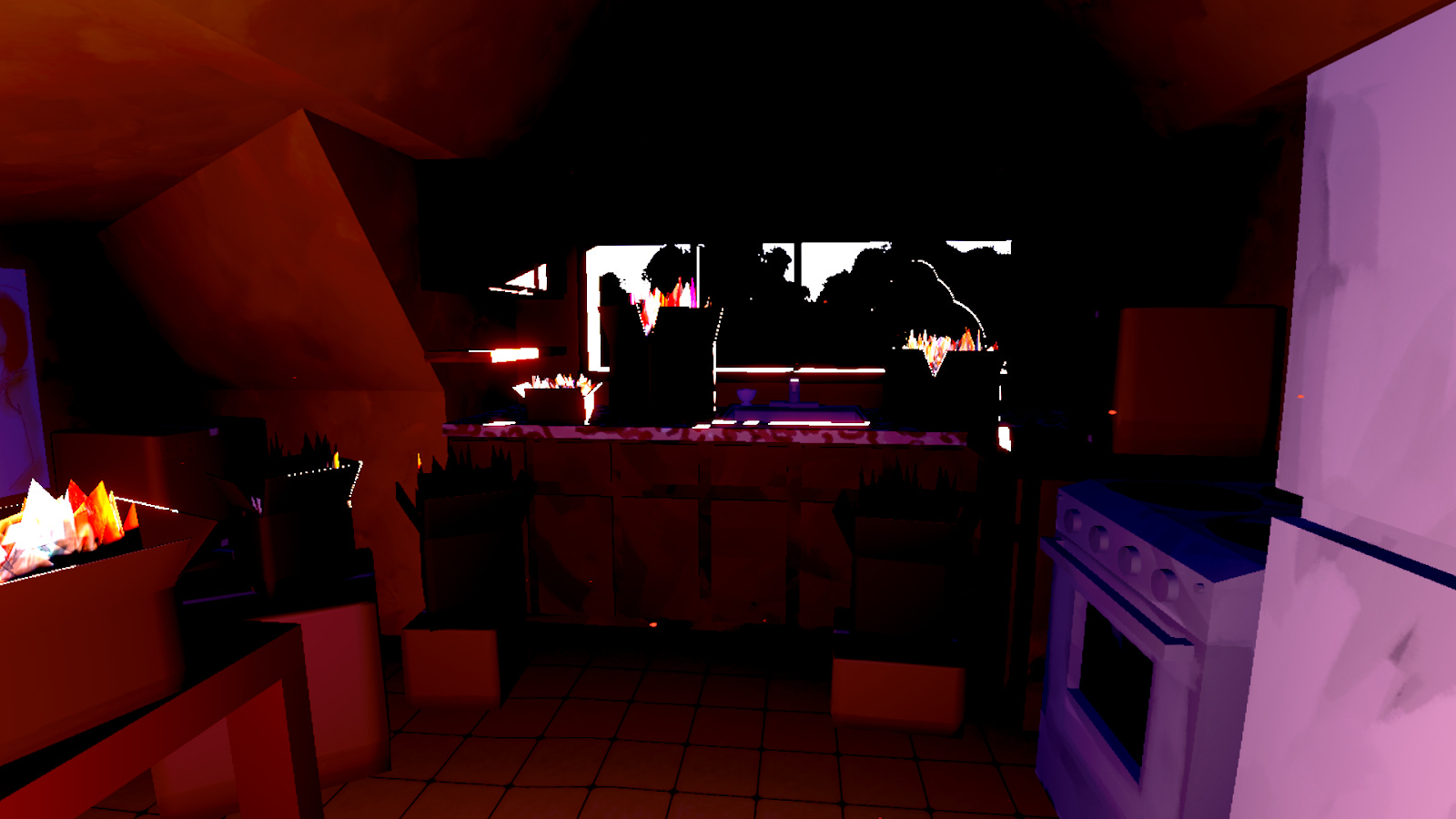
You're in an apartment, preparing to move out. There are boxes everywhere, but some of them appear to be in flames. Clicking on them shows the contents: PlayStation controllers, volumes of manga, necklaces, bras, and dresses tangled together. Some of the boxes have a photograph and a small note tucked inside, each one telling a small chunk of the story. The player must respond by speaking an affirming phrase into their microphone. I relate, tell me more, I'm listening, I follow.
In the first one, Freeman laments her own lack of judgment. He was looking at his phone when they met. Barely paying attention to her. 'That annoys the shit out of me now, why didn't I notice it then?' she writes.
'I know,' I say.
Moving through the apartment reveals more of the relationship and how it came to be. It's sad and familiar, and completely unsurprising to me. Then suddenly, the boxed flames stop flickering. It becomes dark. The music, previously increasing in volume to the point of distortion, stops. I can hear frantic whispering.
I find one box that still flickers. Clicking on it reveals the chunk of the story I had been dreading, the inevitable first instance of violence. But it's the next entry that gets me. 'And I loved again. Believe it or fucking not, I loved again … he touched the bruises on my neck and he told me he'd stay.'
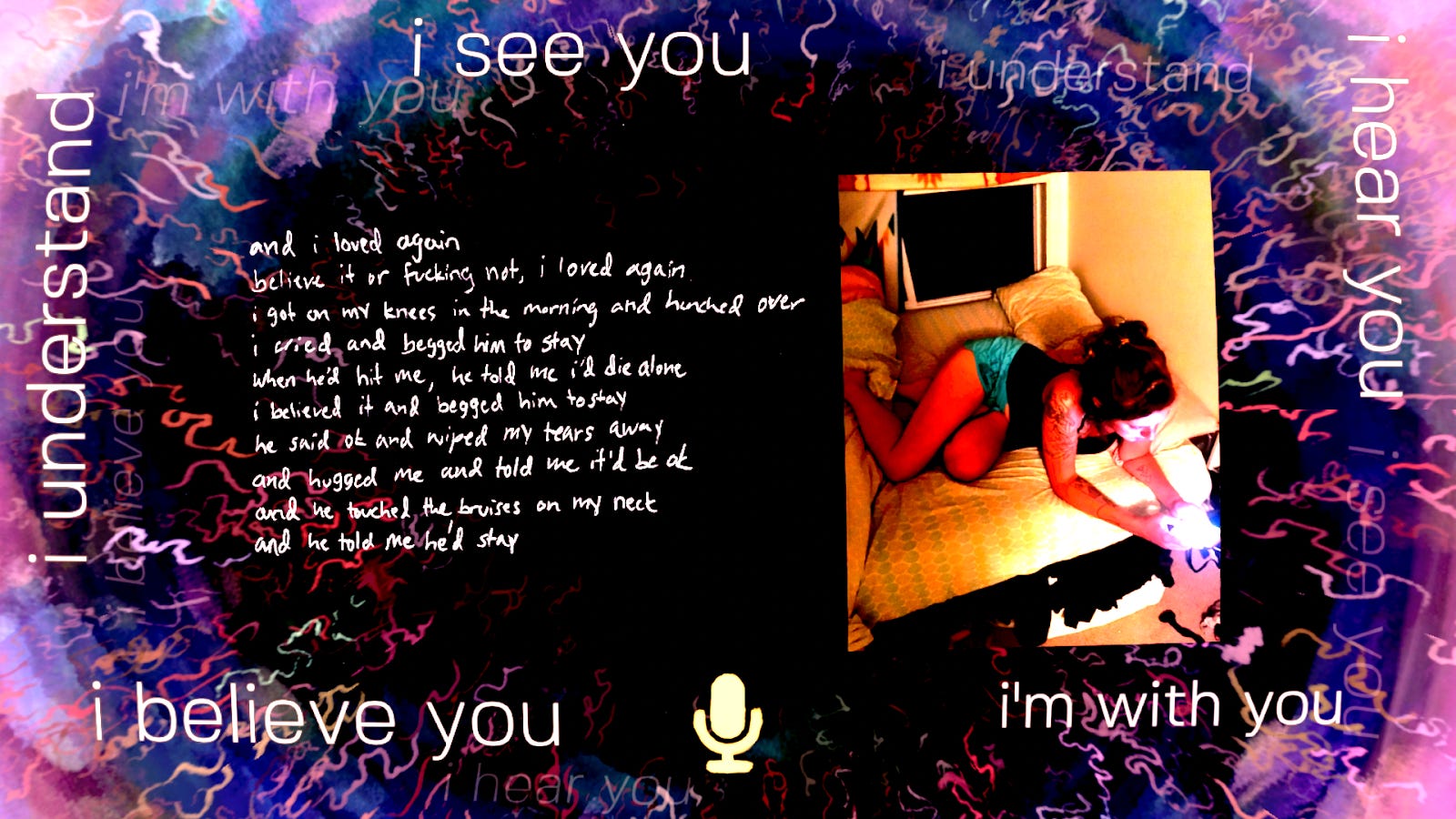
'I understand,' I say, softly.
The microphone icon glows, then fades away.
It sounds depressing (and it is), but I find it weirdly empowering. I don't know this person but there's something uplifting about speaking out loud. When she tells the story of wearing scarves to cover her bruises, I tell her I believe her. It feels good to say it. Cathartic. I say all the words I wish someone had said to me, a long time ago, had I had half of Freeman's courage to share it in the first place.
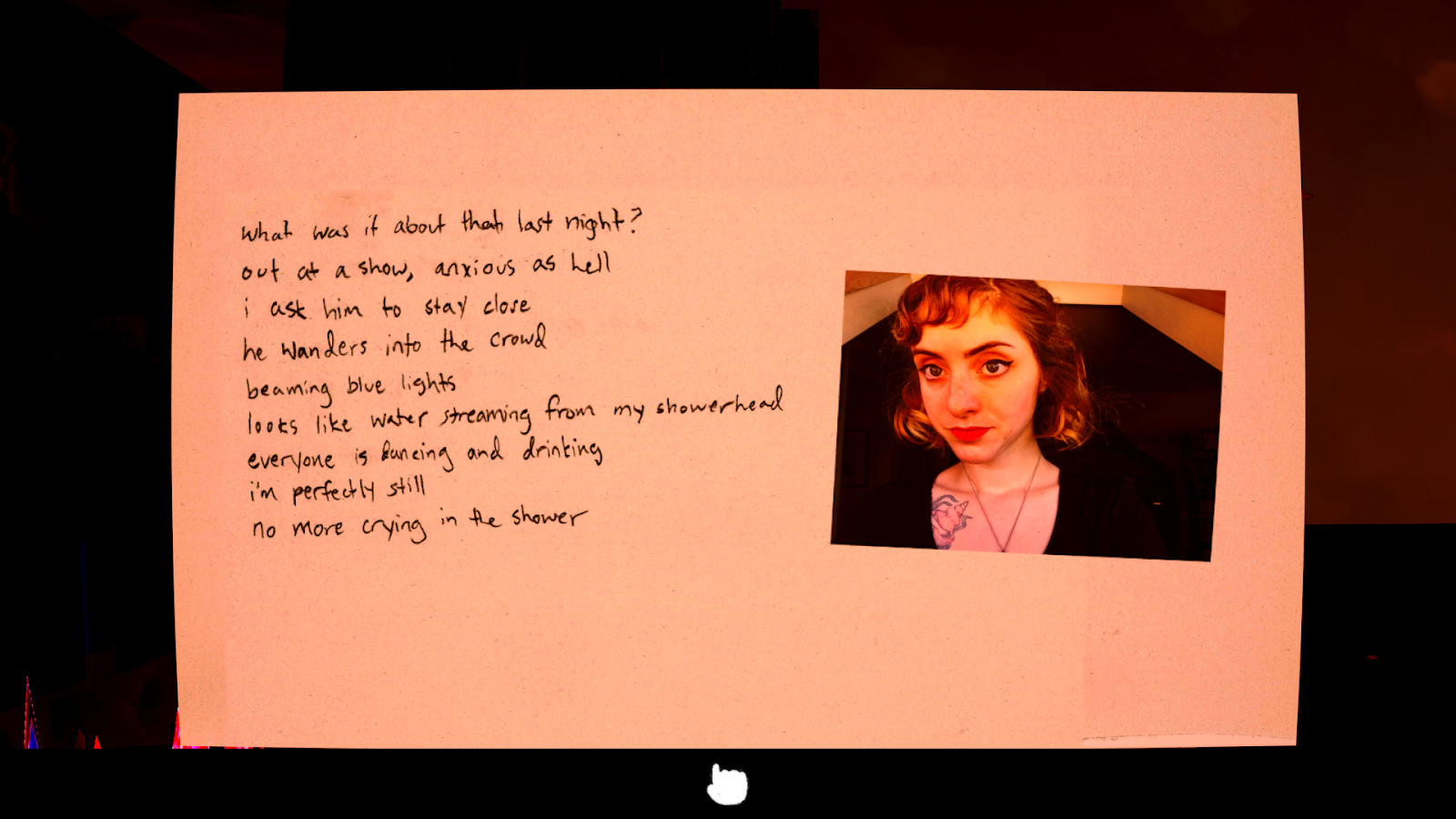
At some point, Freeman leaves. What was it about that last night? she wonders. As she watches him walk away from her, she is resigned. No more crying in the shower. Unfortunately, it's not that easy. This leads me to another reason why it's so hard to leave: the possibility of catastrophic physical danger. A person that has experienced violence understands how scary it is to rock the boat. Freeman, at the end of her story, capsizes it completely. She leaves, and makes it out alive, but not without a heavy cost.
The game that clicks with me most is LOVED, by Alexander Ocias. It's a brutal experience with a relentlessly oppressive soundtrack. It’s a minimalistic browser game in which you play a little creature, traversing a harsh black-and-white landscape. Your job is to jump over pits and avoid traps; landing on the spikes will cause you to explode into a shower of tiny black dots.
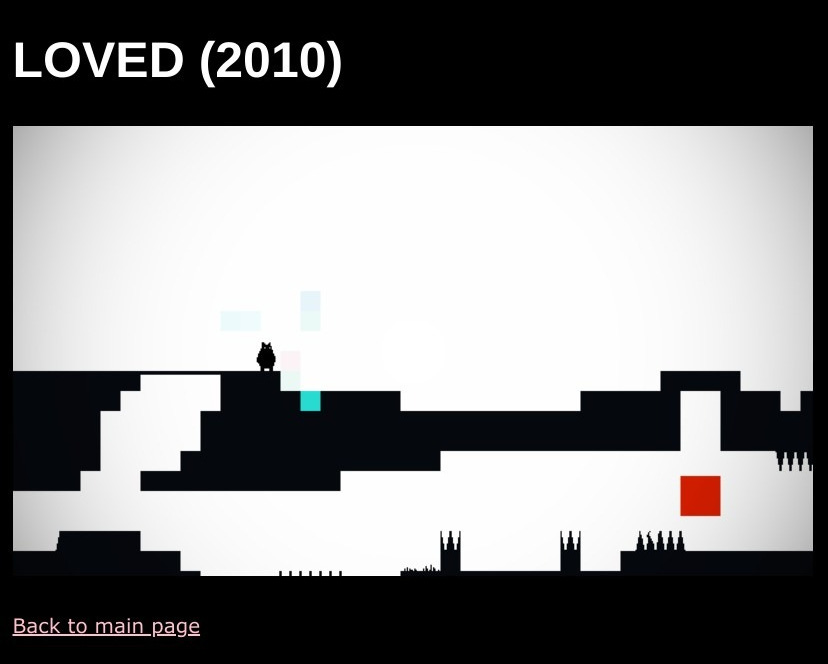
Guiding you is a voice. Right from the start, the voice is unsettling: it asked me if I was a boy or a girl. I clicked 'girl', only to be told 'No. You're a boy.' Refusing to affirm your chosen gender is not something I can relate to as a cis woman, but the blunt refusal still stung. As the game progresses, the voice will guide you, but sometimes it wants to see you suffer (it asks you to throw yourself into a pit of spikes, for example). In Stanley Parable style, you can choose to ignore the voice's instructions. I found myself deliberately disobeying it, even if it caused me to explode, as a small but satisfying 'fuck you'.
As you move through the obstacles, colours begin to erupt around you, transforming the black-and-white landscape, creating extra platforms, and smoothing over spikes. It's a nice illustration of that moment just before you leave an abusive relationship. You begin to awaken to the world around you, and the beauty and potential of life outside of the brokenness becomes your support system, a light at the end of a long, dark tunnel.
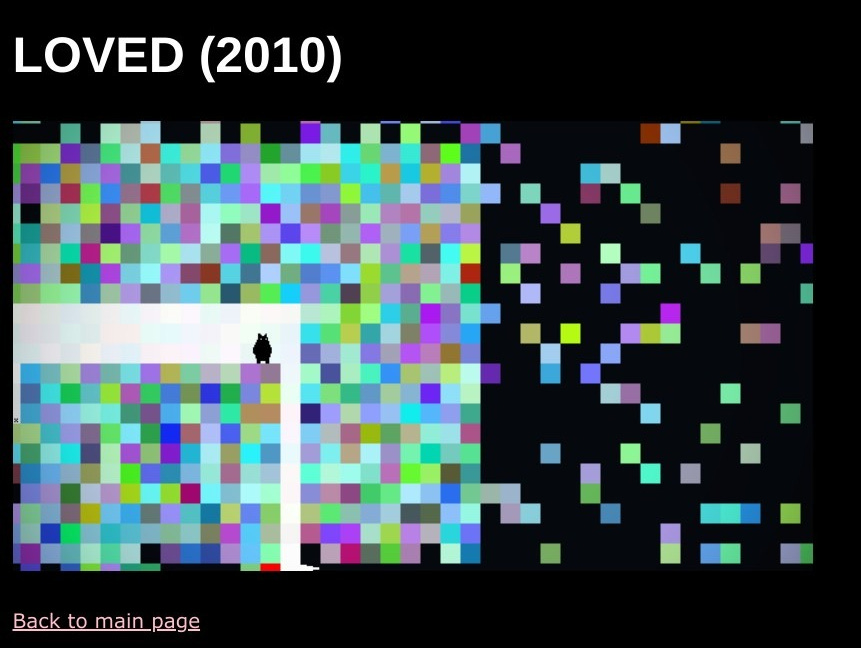
In the end, the voice begs you to stay. It accuses you of hurting it. 'I loved you,' it says. Suddenly, you're able to see them for what they are. Their menace is a facade. Underneath is a kind of fragility you never noticed before.
I am seventeen again, facing him. His voice is loud, but there's a tremble in there somewhere. 'If you walk away now,' he says, 'it's over.' And the next moment only lasts for a couple of seconds, but it's pivotal. Time seems to bend, to slow. And I'm looking him in the eyes but I'm not seeing him anymore. I'm seeing a bright and impossibly wonderful future beyond him. As I'm turning slowly on my heels, he already starts to fade from my mind. It suddenly occurs to me that he doesn't have the power after all; everything relies on me being willing to give it to him.
I guide my little creature down a corridor. The screen fades to black.
I walk away.
Why does it suddenly click? Why does it suddenly become obvious that you need to leave? I still don't know. I've been there, and I don't know for sure. It's like an elastic band snap, I guess. Months or years of building tension, and it's going to break somewhere down the line. All I know is that leaving takes tremendous strength. It's messy. In my case, he begged me to stay. Just like the voice in LOVED, he told me he loved me many times. He followed me home. He turned up at my house in the middle of the night. He got his friends to drive around after me. The initial decision to leave happened in a split second, but it was just the first one. I had to keep re-deciding. Walking away again, and again, and again. Putting myself in physical danger each time. Until it eventually stopped, and I could breathe.
The thing that kept me going was that little glimmer of light and colour. The idea of what my life could be like if I did make the right decision. Happy conversations with friends. A flick through a college brochure. Buying a new top that he didn't approve of first. Allowing myself a hug with a male friend. Little things. They reinforced the idea that I existed without him. That the earth continued to revolve under our feet, and would keep doing so even if we were apart. Those small things smoothed the way for me and made the obstacles easier to overcome.
Perhaps that's the answer: over time, you collect enough small glimmers of hope to build a new path for yourself. You take a tentative step, and you find that it holds. And you just keep walking.
Part of the reason why I've never shared this much detail online before (apart from it being a total fucking downer, obviously) is that I have always been nervous about people's perceptions of me. I remember saying it to our former pastor, eons ago, in what feels like a different life. It had only been a few years, really, since I had escaped that abusive relationship. I was newly married, and happy, but still trying to untangle this deep knot of trauma that nothing seemed to be able to touch.
I thought I could turn it outwards, somehow; I could help someone else, make something better for other girls, and heal myself in the process. And we tried. I linked up with another girl in our church, and we set up an event for young girls in the area, trying to reach them before they got to crisis point. We taught them about true beauty and self-esteem and how to create your own boundaries, and looking back on it, I was absolutely not ready for it, but it was one of the best things I've ever done. (She's also one of my ride-or-die friends now, so it was worth it for that reason at least.)
Anyway. At the time, I told my former pastor a brief overview of my story. I told him about my hopes for the future, my plans to make some kind of difference. I told him I was hesitant. He asked me why. I said: 'Because I don't want this thing to be the one thing that defines me.'
I still don't want it to be the thing that defines me. And sometimes it makes me furious, actually. The thought that the trauma still lives in me, lying dormant somewhere in the depths of my brain, makes me irrationally angry. Sometimes I don't want this to be part of my story. I don't want it to be something that anyone associates with me.
And yet it is. I can't change it. I can't go back and tell myself not to do it. Even if I could, I don't think I would. I've seen too many time-travel stories to understand that this would be a bad move. Because what if it changed what came after?
No, it's not worth it. This ugliness is part of my life story whether I want it to be or not. And I take comfort in the fact that it's a footnote. If I get to be an old lady, and I have the time to contemplate my life, it won't be the bad memories that enter my head. It will be the beautiful ones that came before it, and the incredible ones that came after it.
Maybe I'll be proud of everything I've overcome.
Maybe I'll just be grateful.
One day, I might try to finish that story about the girl trapped in the woods. I could try to let her out. I’ll figure out how to do it. I’ll give people the opportunity to live it, somehow. I’ll help other people to feel understood. I’ll tell them the things they need to hear: I believe you, I get it, I understand.
Meanwhile, I'm glad other people are out there, telling these stories, transcending above Twitter arguments to pour their hearts into some creative expression instead, facing up to pain and allowing themselves to feel it again for the sake of letting other people see it. It takes courage, you know.
It all takes courage.



